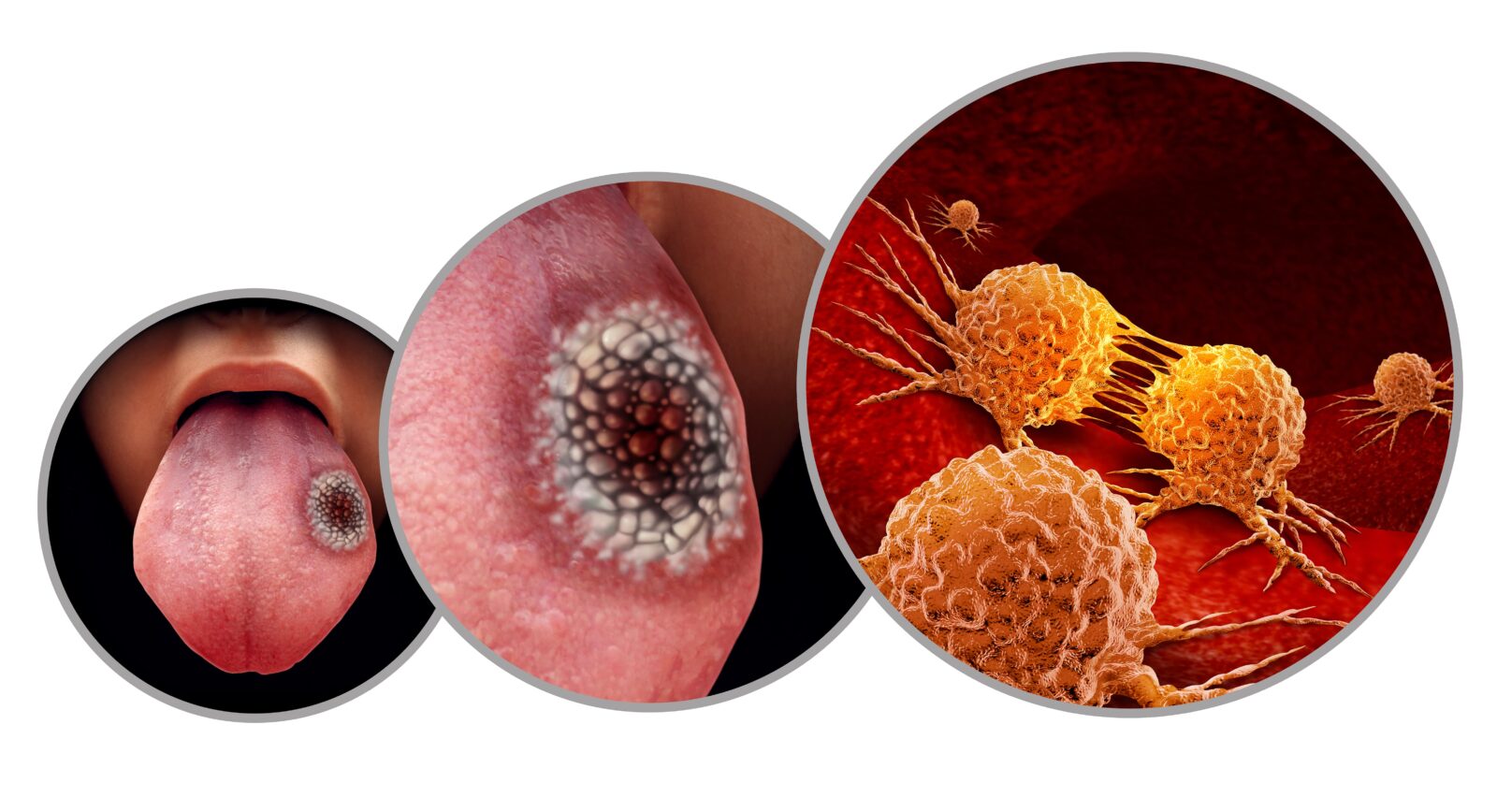April is Oral Cancer Awareness Month, and we want to take this opportunity to educate our patients about the disease. Oral cancer is a type of cancer that affects the mouth, tongue, lips, and throat. It is often diagnosed in its early stages, but if it goes undetected or untreated, it can be deadly. In this blog post, we will discuss the risk factors for oral cancer and five steps you can take to prevent oral cancer.
What is Oral Cancer?
Oral cancer is a type of cancer that affects the gums, tongue, lips, and upper throat (pharynx). It can also affect the soft and hard palates, as well as the inside of the cheeks. It can be difficult to detect in its early stages because it does not usually cause pain. When caught early, oral cancer is highly treatable. However, if it goes undetected or untreated, it can spread to other parts of the body and be deadly.

In order to catch oral cancer in the early stages, it is important to be aware of its symptoms. The most common symptoms of oral cancer are:
- A sore or lump in the mouth that does not go away
- Bleeding in the mouth
- Persistent pain in the mouth
- Numbness in the tongue or lips
- Difficulty swallowing
- A change in voice (hoarseness)
If you experience any of these symptoms, we recommend that you see a dentist or doctor as soon as possible for an examination.
Risk Factors for Oral Cancer
In addition to being aware of the symptoms of oral cancer, there are also certain risk factors that can increase your chance of developing the disease. Some of these risk factors include:
Tobacco use:
This is the most important risk factor for oral cancer. People who use tobacco products (cigarettes, cigars, pipes, smokeless tobacco) are six times more likely to develop oral cancer than those who do not use tobacco.
Alcohol consumption:
Heavy drinkers are three times more likely to develop oral cancer than non-drinkers.

HPV infection:
Human papillomavirus (HPV) is a sexually transmitted virus that can cause changes in the cells of the mouth and throat, which can lead to cancer.
Age:
The risk of developing oral cancer increases with age. Most cases are diagnosed in people over the age of 40.
Gender:
Men are twice as likely as women to develop oral cancer.
Ultraviolet light exposure:
People who spend a lot of time in the sun (e.g., outdoor workers) or who use tanning beds are at increased risk for developing lip cancer.
Diet:
A diet low in fruits and vegetables has been linked to an increased risk of developing oral cancer.
Five Ways to Prevent Oral Cancer
Now that we know more about oral cancer and its risk factors, let’s look at some steps we can take to prevent oral cancer. It is important to note that these steps cannot guarantee that you won’t get oral cancer, but they will decrease your individual risk. Here are five ways you can prevent oral cancer:
Stop using tobacco products.
If you smoke cigarettes or cigars, or use chewing tobacco, now is the time to quit. Tobacco use is the leading cause of oral cancer.
Limit your alcohol consumption
Drinking alcohol in moderation can be part of a healthy lifestyle. However, excessive alcohol consumption is a major risk factor for oral cancer. If you drink alcohol, do so in moderation (one drink per day for women, two drinks per day for men).

Protect your lips from the sun
Wearing sunscreen and lip balm with SPF 30 or higher can help protect your lips from the harmful effects of ultraviolet (UV) rays.
Eat a healthy diet
Eating a diet rich in fruits and vegetables has been linked with a reduced risk of developing oral cancer. aim for at least five servings of fruits and vegetables per day.
Schedule Regular Dental Checkups.
Dentists are trained to screen for oral cancer during routine dental exams. They will look for anything abnormal, such as lumps, bumps, or sores in the mouth. In some cases, they may also use a special light that can detect tissue abnormalities. If they see anything suspicious, they will generally refer you to your primary doctor for a biopsy to confirm whether or not it is cancer.
In Conclusion
Oral cancer is a serious disease that can be deadly if it is not caught in the early stages. However, there are steps you can take to reduce your risk of developing oral cancer. Quitting tobacco use, drinking alcohol in moderation, protecting your lips from the sun, eating a healthy diet, and scheduling regular dental checkups are all great ways to prevent oral cancer.
If you are concerned that you may have oral cancer, we urge you to see a dentist or doctor as soon as possible. Early detection is key to successful treatment.
